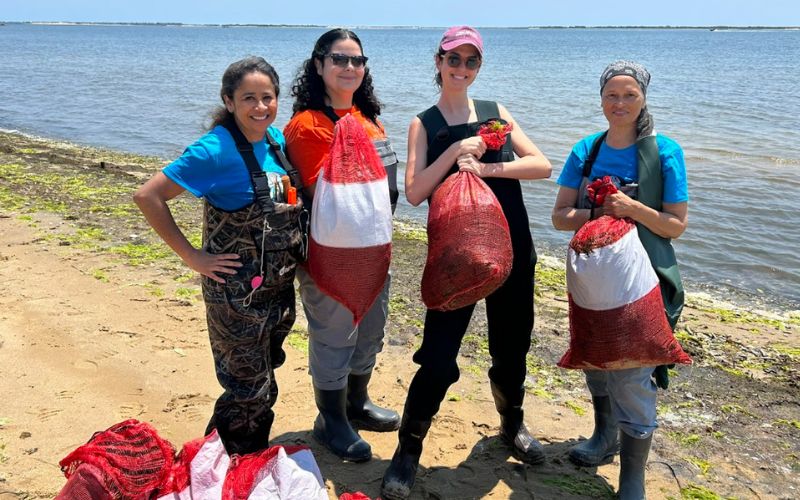
- Details
- By Native News Online Staff
Native News Online’s Jenna Kunze has been selected as one of 100 journalists from around the world to participate in the Oxford Climate Journalism Network’s program in 2024.
Kunze, a senior reporter for the Indigenous-led news outlet, is one of just six North American journalists selected from a pool of 700 applicants worldwide for the prestigious program’s fifth cohort.
The Oxford Climate Journalism Network supports a global community of reporters and editors across beats and platforms to improve the quality, understanding and impact of climate coverage around the world. It is a program of the Reuters Institute for the Study of Journalism at the University of Oxford in the United Kingdom.
Since its launch in January 2022, the network has worked with 400 reporters and editors from over 100 countries, from editors-in-chief and business editors to photojournalists and climate specialists. Any person in the newsroom, from any desk, can join the network.
 Make A Donation Here
Make A Donation Here
“Jenna’s selection for the Oxford Climate Journalism program is a testament to her dedication to shining a light on crucial Indigenous issues,” Native News Online Editor and Publisher Levi Rickert said. “This unique and prestigious opportunity will allow us to share more stories, Indigenous perspectives, and practical solutions that affect Native communities dealing with climate change.”
Based in New York City, Kunze leads Native News Online’s coverage of Indian boarding schools and repatriation, and also writes frequently about health equity and environmental justice issues in Indian Country. Since joining Native News Online in 2021, Kunze has earned fellowships with the USC Annenberg Center for Health Journalism and Solutions Journalism Network, and has reported in-depth stories about Indigenous issues that were funded by the Pulitzer Center for Crisis Reporting.
Previously, she worked as a journalist in Alaska for two years, with a focus on climate change, Indigenous people, and violence against Native women. During that time, she moved to the Alaskan Arctic to report a Pulitzer Center-funded story about the adaptability and resilience of the Iñupiat people in the face of an ever-changing climate. Her reporting, in collaboration with audio journalist Alice Qannik Glenn (Iñupiaq), earned her a global 2021 Covering Climate Now Journalism Award, presented by Columbia Journalism Review and NBC's Al Roker.
More recently, her story about a team of Indigenous doulas reclaiming birthing practices and saving lives by providing maternal care to Native women was one of 43 stories highlighted by the Pulitzer Center in 2023. The story was co-published by Native News Online, Elle Magazine and multiple McClatchy newspaper outlets in Washington state.
More Stories Like This
Native News Weekly (August 25, 2024): D.C. BriefsUS Presidents in Their Own Words Concerning American Indians
Monday Morning (December 8, 2025): Articles You May Have Missed This Past Weekend
Native News Weekly (December 7, 2025): D.C. Briefs
Breaking: Final Defense Legislation Grants Federal Recognition to Lumbee Tribe
Help us defend tribal sovereignty.
At Native News Online, our mission is rooted in telling the stories that strengthen sovereignty and uplift Indigenous voices — not just at year’s end, but every single day.
Because of your generosity last year, we were able to keep our reporters on the ground in tribal communities, at national gatherings and in the halls of Congress — covering the issues that matter most to Indian Country: sovereignty, culture, education, health and economic opportunity.
That support sustained us through a tough year in 2025. Now, as we look to the year ahead, we need your help right now to ensure warrior journalism remains strong — reporting that defends tribal sovereignty, amplifies Native truth, and holds power accountable.
 The stakes couldn't be higher. Your support keeps Native voices heard, Native stories told and Native sovereignty defended.
The stakes couldn't be higher. Your support keeps Native voices heard, Native stories told and Native sovereignty defended.
Stand with Warrior Journalism today.
Levi Rickert (Potawatomi), Editor & Publisher

